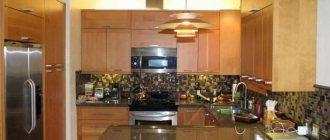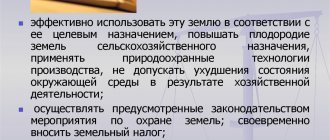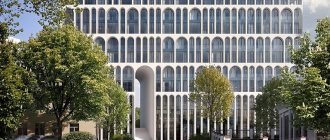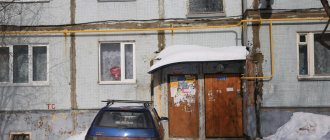Pravozhil.com > Housing and communal services issues > HOA > Basic rights and obligations of the owner of residential premises in an apartment building
Being the owner of an apartment in an apartment building, you have to accept the conditions of cohabitation.
And it’s not just about personal convenience and anxiety from noisy neighbors. Each such owner has the right to use his housing and common property in the apartment building. However, he also has certain responsibilities.
We will talk further about what the responsibilities of the owner of a residential premises in an apartment building are.
Responsibilities of the owner of residential premises in an apartment building - what does the law say?
Legislation on owners of premises in an apartment building
General rules on property rights are contained in the Civil Code of the Russian Federation. Each owner is allowed to use and dispose of their housing as they please.
However, at the same time, he should not forget about the interests of other persons, in particular, neighbors.
In addition, you need to maintain your own property and make the necessary expenses for this. The rights to residential properties are discussed in more detail in the Housing Code of the Russian Federation.
Article 30 of the said code lists the rights and obligations of all owners of such property. According to their meaning, the disposal of one’s own housing should not negatively affect neighbors, the apartment itself, or the general property of the house.
Provisions similar in meaning are contained in the “Rules for the use of residential premises” (approved by Decree of the Government of the Russian Federation of January 21, 2006 No. 25).
All residents of high-rise buildings should not allow the destruction of their apartments, property of the house, disturb the peace of neighbors, or commit other actions that are contrary to accepted laws.
What are the rights and obligations of the owner of a residential premises?
Lawyer Antonov A.P.
The owner of a residential premises has the right to own it, use it for residence or professional activities, and enter into transactions with it within the limits established by law. The owner is obliged to pay the costs of maintaining the housing, maintain it in proper condition, respect the rights and legitimate interests of neighbors, as well as the rules for the use of residential premises.
Types of residential premises In accordance with housing legislation, residential premises include a residential building (part of a residential building), apartment (part of an apartment) and a room (Part 1 of Article 16 of the Housing Code of the Russian Federation). A residential building (individual housing construction facility, individual residential building) is understood as a separate building with no more than three above-ground floors, no more than 20 meters in height, which consists of rooms and auxiliary premises intended to satisfy citizens’ household and other needs, associated with their residence in such a building, and is not intended for division into independent real estate objects (part 2 of article 16 of the RF Housing Code; clause 39 of article 1 of the RF Civil Code). An apartment is a structurally separate room in an apartment building, providing direct access to the common areas in such a building and consisting of one or more rooms, as well as auxiliary premises intended to satisfy citizens' household and other needs related to their residence in such a building. in a separate room (Part 3 of Article 16 of the Housing Code of the Russian Federation). A room is recognized as a part of a residential building or apartment intended for use as a place of direct residence of citizens in a residential building or apartment (Part 4 of Article 16 of the Housing Code of the Russian Federation).
Rights of the owner of residential premises The owner of residential premises has the right to own, use and dispose of it (clause 1 of article 209, clause 1 of article 288 of the Civil Code of the Russian Federation; part 1 of article 30 of the Housing Code of the Russian Federation). He has the right to perform any actions in relation to his property that do not contradict the law and do not violate the rights and legally protected interests of other persons. In particular, the owner can alienate his housing to other persons - sell, donate, bequeath, transfer as a contribution to the authorized capital of organizations, pledge the housing, transfer it to trust management and dispose of it in any other way (clauses 2, 4 of Art. 209, Article 1012, paragraph 1 of Article 1013 of the Civil Code of the Russian Federation). The owner of housing can use it for personal residence and residence of his family members, as well as provide housing to other persons for ownership and (or) use under rental agreements, free use or on other legal grounds (clause 2 of article 288 of the Civil Code of the Russian Federation ; part 2 of article 30 of the Housing Code of the Russian Federation). Along with living, the owner of a residential premises has the right to use it to carry out professional or individual entrepreneurial activities, provided that such use does not violate the rights and legitimate interests of other citizens, as well as the requirements that the residential premises must meet (clause 4 of the Rules, approved by Government Decree RF dated January 21, 2006 N 25). The owner of a residential premises has the right to transfer to another person the right to dispose of the residential premises on the basis of a notarized power of attorney (clause 1 of Article 185, clause 1 of Article 185.1, clause 2 of Article 209 of the Civil Code of the Russian Federation). Also, the owner of a residential premises has the rights of ownership, use and disposal, within established limits, of the common property of an apartment building (Article 290 of the Civil Code of the Russian Federation; Article 36 of the Housing Code of the Russian Federation). The owner of a residential premises has the right to take part in a general meeting of owners of premises in an apartment building, both personally and through a representative (Part 1 of Article 48 of the Housing Code of the Russian Federation). Also, the owner of a residential premises has the right to become a member of the HOA formed to manage an apartment building (Part 1, Article 135, Parts 1, 2, Article 143 of the Housing Code of the Russian Federation).
Responsibilities of the owner of residential premises The owner must exercise his rights in relation to the residential premises in accordance with its purpose and the limits of its use established by law. For example, the placement of industrial production and hotels in residential premises is not allowed (clause 3 of article 288 of the Civil Code of the Russian Federation; part 1 of article 30 of the Housing Code of the Russian Federation; clause 4 of Rules No. 25). The owner bears the burden of maintaining the property he owns (Article 210 of the Civil Code of the Russian Federation). In particular, he is obliged to pay for housing and utilities, and pay property tax for individuals. The obligation of the owners of premises in an apartment building to maintain common property has also been established (Part 3 of Article 30, Clause 5 of Part 2 of Article 153 of the RF Housing Code; Article 400, Clauses 1, 2, Clause 1 of Article 401 of the Tax Code of the Russian Federation; clause 28 of the Rules, approved by Decree of the Government of the Russian Federation of August 13, 2006 N 491). The owner of the housing is obliged to maintain it in proper condition, preventing mismanagement of it, to comply with the rights and legitimate interests of neighbors, the rules for the use of residential premises, as well as the rules for maintaining the common property of the owners of premises in an apartment building. Thus, the owner must carry out the reconstruction or redevelopment of residential premises in compliance with the requirements of the law and in agreement with the local government (Part 1, Article 26, Part 4, Article 30 of the Housing Code of the Russian Federation). For the owner of a residential premises, decisions of the general meeting of owners of premises in an apartment building, adopted in the prescribed manner (Part 5, Article 46 of the Housing Code of the Russian Federation), are mandatory.
Responsibility of the owner of a residential premises In case of non-payment of mandatory payments due to the presence of residential premises in the property of a citizen, the debt can be forcibly collected at the expense of the property of the owner (Article 48 of the Tax Code of the Russian Federation; Article 69 of the Law of October 2, 2007 N 229-FZ). If the owner of a residential premises uses it for other purposes, systematically violates the rights and interests of neighbors, or mismanages the housing, allowing it to be destroyed, the local government body may warn the owner of the need to eliminate the violations, and also set a proportionate period for repairing the premises. If the owner, after warning, continues to violate the rights and interests of neighbors or uses the property for other purposes or fails to make the necessary repairs without good reason, the court, at the request of the local government body, may decide to sell such premises at public auction with payment to the owner of the proceeds from the sale minus expenses for the execution of a court decision (Article 293 of the Civil Code of the Russian Federation; clause 10 of the Resolution of the Plenum of the Supreme Court of the Russian Federation dated July 2, 2009 N 14). If the owner carries out unauthorized redevelopment and (or) reconstruction of the residential premises, violating the rights and legitimate interests of citizens or creating a threat to their life or health, if the owner refuses to restore the residential premises to their previous condition, it can also be sold at public auction (clause 1 of Part 1. 5, Article 29 of the Housing Code of the Russian Federation).
Sincerely, lawyer Anatoly Antonov, managing partner of the law firm Antonov and Partners.
Still have questions for your lawyer?
Ask them right now here, or call us by phone in Moscow +7 (499) 288-34-32 or in Samara +7 (846) 212-99-71 (24 hours a day), or come to our office for a consultation (by pre-registration)!
Rights of homeowners in apartment buildings
What are the rights of apartment building residents?
What are the rights of homeowners in an apartment building? The most important advantage of owning your own home is the ability to freely use it, as well as own it and, of course, dispose of it.
Owners can live in their own apartment, place their family and other people in it on the basis of contracts. They also own a share in the general wealth of the MKD and can use it.
In addition, they have the right to participate in decision-making at the general meeting of apartment building residents.
And like all residents of the house who pay for housing and communal services, they have the right to receive services of normal quality from housing and communal services organizations. And if they are dissatisfied, they can complain to the appropriate authorities.
Responsibilities of homeowners in apartment buildings
The owner of the premises bears a certain responsibility. First of all, all residents of the building are required to use their apartments exclusively for living. It is prohibited to use them for other purposes that do not correspond to the purpose of these objects.
For example, you cannot set up a chicken coop or a nightclub in your apartment. The responsibilities of owners of their own apartments also include their proper maintenance.
The condition of the apartment should not pose a threat to its residents themselves, as well as their neighbors. The apartment must be repaired in a timely manner; illegal alterations and other actions leading to the destruction of the property are not allowed. The use of housing should not violate anyone's interests.
In addition, it is important to comply with all established standards for sanitary, fire and environmental safety. It is also obligatory to make timely payment of all housing and utility payments for your apartment and share in the common property of the house.
Owner's obligation to maintain housing
Explains the senior assistant prosecutor of the city of Pervouralsk O.A. Chalova.
According to Article 1 of the Housing Code of the Russian Federation, citizens, at their own discretion and in their own interests, exercise their housing rights and also dispose of them. At the same time, citizens, while exercising housing rights and fulfilling the responsibilities arising from housing relations, must not violate the rights, freedoms and legitimate interests of other citizens.
In accordance with Art. 30 of the Housing Code of the Russian Federation, the owner of a residential premises exercises the rights of ownership, use and disposal of the residential premises belonging to him by right of ownership in accordance with its purpose and the limits of its use, and also bears the burden of maintaining this premises. The owner is obliged to maintain this premises in proper condition, preventing mismanagement of it, respect the rights and legitimate interests of neighbors, as well as the rules for the use and maintenance of common property. The burden of maintaining property, according to Article 210 of the Civil Code of the Russian Federation, should be understood as the owner’s obligation to maintain the property in good condition, safe and suitable for use for the purpose of the property. The degree of care and prudence of the owner when fulfilling this responsibility may be provided for in technical regulations and operating rules for certain types of activities. Citizens and organizations are required to pay rent and utilities on time and in full. Also, family members of the owner of a residential premises have the right to use this residential premises on an equal basis with the owner and members of his family. Family members of the owner are obliged to use this residential premises for its intended purpose and ensure its safety.
Responsibility for improper use of residential premises rests with its owner. According to Article 293 of the Civil Code of the Russian Federation, if the owner of a residential premises uses it for other purposes, systematically violates the rights and interests of neighbors, or mismanages the housing, allowing it to be destroyed, the local government body can warn the owner about the need to eliminate the violations, and if they lead to destruction premises, also assign the owner a proportionate period for repairing the premises. If, after the warning, the owner continues to violate the rights and interests of neighbors or use the residential premises for other purposes, or fails to make the necessary repairs without good reason, the court, at the request of the local government body, may decide to sell such residential premises at public auction with payment to the owner of the proceeds from sale of funds minus the costs of executing a court decision.
What is included in the common property of an apartment building?
The concept of common property of owners of apartment buildings
For many, the common property of a multi-storey building is a very abstract concept.
Not everyone knows what exactly this applies to. In fact, the places, equipment, and technical equipment used by all residents of the house and necessary for its operation as a whole are recognized as common.
In other words, everything outside the apartments is common.
Common ones include:
- staircases, corridors;
- elevators;
- attics and basements;
- other non-residential premises;
- house electrical networks;
- engineering networks and equipment;
- land under the house.
Why is it necessary to distinguish personal from common property?
It is not without reason that the legislator clearly defines the provisions on the composition of the joint property of residents. Why is this done? You can dispose of your own housing at your own discretion, while shared housing only with the consent of all co-owners.
The distinction helps determine how much to bear the costs of maintaining a particular property. Owners pay and are responsible for their own.
They chip in together for the maintenance of the common. Therefore, delimitation helps to divide the areas of responsibility of each tenant in relation to various property objects.
Is the decision of the general meeting binding?
Based on the results of consideration of the issues raised at the meeting of MKD owners, they make a decision. To do this, everyone present must vote.
It usually requires the votes of a majority of residents to pass. The progress of the meeting itself should be recorded in the minutes, and the agreements reached should be reflected in the decision.
This document is official and binding. This is directly stated in Art. 46 Housing Code of the Russian Federation. If decisions are made correctly without any violations, then they need to be implemented even by those who were not present at the meeting itself.
However, such persons have the opportunity to appeal this decision if they consider it a violation of their rights. In cases where there is only one owner in the house, he makes all decisions himself.
Regardless of the reasons for using an apartment in an apartment building, all residents must respect the interests of their neighbors and the established standards of living in apartment buildings.
Residents-owners, in addition to the rights to their housing, also acquire certain responsibilities. Failure to comply may result in unfavorable consequences for apartment owners, including eviction.
You can learn about some of the rights and responsibilities of apartment building owners by watching the video:
See also Phone numbers for consultation 03 Dec 2021 kasjanenko 1098
Share this post
Discussion: there is 1 comment
- Irina says:
08/08/2020 at 09:24How often should homeowners' meetings be held? If there are municipal apartments in an apartment building, then those living in them do not have the right to participate in meetings?
Answer
RULES OF RESIDENCE IN AN APARTMENT BUILDING. RESPONSIBILITIES
RULES OF RESIDENCE IN AN APARTMENT BUILDING
Relationships between neighbors when using premises in residential buildings are regulated by the Rules for the use of residential premises, maintenance of residential and auxiliary premises.
THE RULES ESTABLISH A NUMBER OF RESPONSIBILITIES FOR CITIZENS, INCLUDING:
THE RULES OF RESIDENCE IN HOUSES ESTABLISH A NUMBER OF OBLIGATIONS FOR CITIZENS, INCLUDING:
- Citizens are obliged to use residential and auxiliary premises of an apartment building only in accordance with their purpose;
- Strictly comply with the standards established by law for living, including sanitary, epidemiological and technical requirements, fire safety rules, and other requirements provided for by Belarusian legislation;
- Constantly keep your living quarters clean and tidy and, in addition, the adjacent utility rooms, balconies and loggias, maintain in order (do not litter) elevators and elevator platforms, auxiliary premises of multi-apartment residential buildings and the local area;
- Ensure timely access to the residential premises occupied by them or in their possession and use, as well as to the engineering equipment located there, for employees of housing and communal services organizations to check the compliance of the residential premises with the sanitary, epidemiological and technical requirements established for living, carrying out inspections, repair work, and taking readings devices for individual consumption metering of water, heat and electricity, gas, as well as for suspending the provision of certain types of utilities in case of non-payment;
- Use televisions, radios, tape recorders and other devices capable of creating noise only on condition that the sounds do not disturb the peace of other citizens in the residential building. Attention: from 23.00 to 7.00 no actions should be performed that create vibration or noise;
- Maintain utility storerooms (sheds) and adjacent passageways occupied in the basement and auxiliary premises of a residential building in proper technical, fire safety and sanitary condition, prevent the accumulation of garbage in them, the storage of explosives, flammable (combustible) liquids, gas cylinders and other flammable materials substances and materials, as well as the use of open fire;
- maintain the functioning of fire protection elements (escape doors, hatches, stairs) located on balconies and loggias.
- Dispose of garbage and municipal solid waste in a timely manner in specially designated areas;
- Ensure proper preparation of residential premises for use in the autumn-winter period (insulation of windows and doors).
- Citizens living in an apartment building have the right to independently take measures for the maintenance and repair of common property and (or) engage third-party organizations to provide services and perform work on its maintenance and repair, taking into account the chosen method of managing common property. The most detailed information about the rules of residence in apartment building is contained in Resolution of the Council of Ministers of the Republic of Belarus dated May 21, 2013 No. 399, which approves the newest rules for the use of residential premises, maintenance of residential and auxiliary premises. Do not forget, despite the release of a new decree on the rules of living in houses, the old rules have not lost their force.







